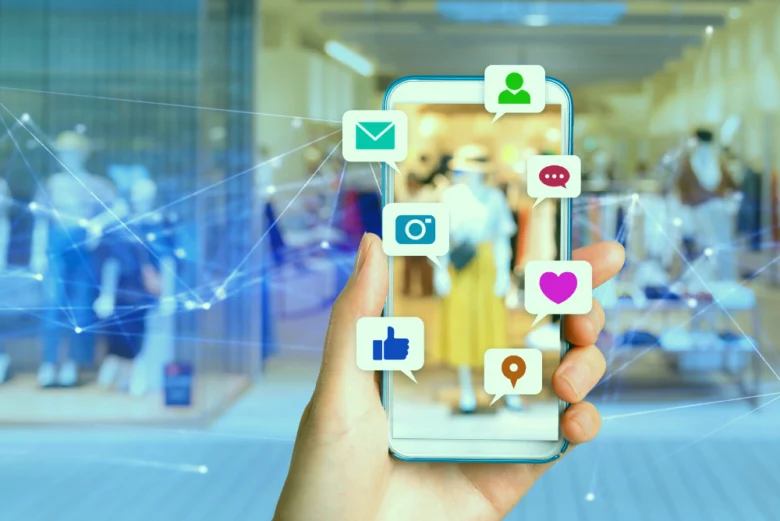Social media has revolutionized online communication, impacting community building, news coverage, politics, entertainment and advertising – as well as potential misinformation and child sexual exploitation issues. But with all its advantages comes some potential downsides as well.
Since its beginnings, social media has constantly evolved in response to technological and societal shifts. Microblogging platforms like Twitter (now X) and Threads allowed real-time conversations while digital image sites like Pinterest added visual dimensions.
1. TikTok
TikTok, owned by China’s ByteDance, has become the fastest growing social media app worldwide. Popular among entertainment-hungry users for entertainment purposes and humor videos alike, but also used as an informational medium – influential users use TikTok to promote products or provide tips related to beauty, food, personal finance/budgeting needs/language study or fitness on this platform.
App popularity has led to some criticism. Critics worry that Chinese-owned company could share American user data with authorities. President-elect Joe Biden put off forcing a sale, though his administration is currently reviewing whether or not to assess national security risks associated with using the app.
2. Instagram
As social media platforms developed, communities devoted to specific industries emerged – from business networking on LinkedIn to food and restaurant sharing on Instagram. YouTube revolutionized content production by making anyone with a camera an influencer of internet culture and trends; Twitter brought real-time dialogue and news directly to users; however its popularity has since diminished due to Elon Musk renaming Twitter to X in 2023.
Instagram launched the age of influencer marketing, in which individuals with large audiences can promote products through posts and videos on the platform. Instagram’s algorithm changes ensure users remain engaged by showing content which feels authentic and pertinent to their interests.
3. Facebook
Facebook remains the global social network and marketing powerhouse, offering people and businesses alike a personalized feed with many features and tools designed to foster online interaction and collaboration. Despite fierce competition from TikTok and Instagram, however, Facebook remains unrivaled when it comes to social media usage. As both a global community and marketing tool it offers its members an individualised feed as well as tools that allow for interaction online.
Launched in 2004, Facebook rapidly spread across college campuses and beyond, eventually opening to anyone aged 13 years and above by 2007. In 2014, Facebook updated their algorithm to prioritize high-quality content over clickbait links, while simultaneously adding a real-time newsfeed similar to Twitter and the ticker feature that displayed updates instantly, saving time.
4. Twitter
After Elon Musk’s takeover, Twitter remains a powerful player in social media. Recent data shows a remarkable level of stability on its platform while trending more heavily toward echo chambers. Twitter tweets may include links to external content; however, link sharing peaked in 2017 and has since declined substantially, with replies following suit on an exponential downward curve—further suggesting Twitter may increasingly serve as an echo chamber of amplification.
Twitter stands out from other social platforms with features that set it apart, including real-time information sharing, direct messaging, groups and communities, fleets, bookmarks, Grok integration, social audio (Spaces), polling capabilities and location tagging capabilities.
5. Snapchat
Social media platforms evolve. Some, like Facebook and YouTube, have been around for an extended period, while others may come and go over time. Snapchat is an innovative visual messaging and ephemeral content sharing service that has revolutionized how young people communicate online.
The Snapchat camera provides many features to make the experience enjoyable, such as its facial recognition-based selfie filters that create humorous or scary faces on photos taken with it. Snapchat provides geofilters, which enable users to add real-time overlays to their Snaps, helping drive revenue growth and user engagement. These filters have proven extremely valuable.
6. YouTube
YouTube is the largest video platform and an invaluable source of entertainment and education for young people worldwide. Offering everything from music videos and gaming streams to tutorials and even vlogs, it provides content suitable for young viewers of all kinds – providing both entertainment and learning opportunities in one convenient spot.
YouTube stands out as an amazing platform because it does not require expensive production teams; even videos made on smartphones can be uploaded. Furthermore, its videos occupy prime real estate on search result pages and can help businesses of any size to reach millions of viewers worldwide.
7. LinkedIn
Social media comes in all sorts of flavors – vanilla Facebook, delicious Twitter bites, on-the-go Instagram meals and of course zero-calorie Snapchat!
Each platform caters to its target demographic group and audience; for instance LinkedIn is often utilized by professionals in business-related fields while Facebook tends to appeal more strongly towards younger individuals than older ones. Mattress companies frequently run advertisements on these platforms in order to raise brand awareness and boost sales while also raising funds for charity or non-profit events.
8. Reddit
Reddit is an entertainment, social networking, and news website where users submit text posts or links to other websites known as “subreddits.” Visitors can engage with Reddit in many different ways, such as posting content, commenting, and private messaging. Upvoting and downvoting content is a popular feature on the site, with posts receiving more upvotes appearing higher up on the front page.
Reddit boasts over 138,000 communities and serves as an indispensable online news and discussion source for many individuals. Through its forum-style format, this platform facilitates real-time discussions on current events to niche interests. Individuals may share personal stories or seek advice through Reddit.
9. Pinterest
Pinterest is a visual search engine that enables users to create collections of images and videos called Pins that link back to websites or products, making this platform ideal for building virtual bookmarks. Pinners can save their pins to boards which serve as digital bookmarks.
Pinterest prioritizes content that speaks directly to individual interests and passions, rather than likes and engagements, making it an excellent platform for businesses looking to drive traffic and sales.




